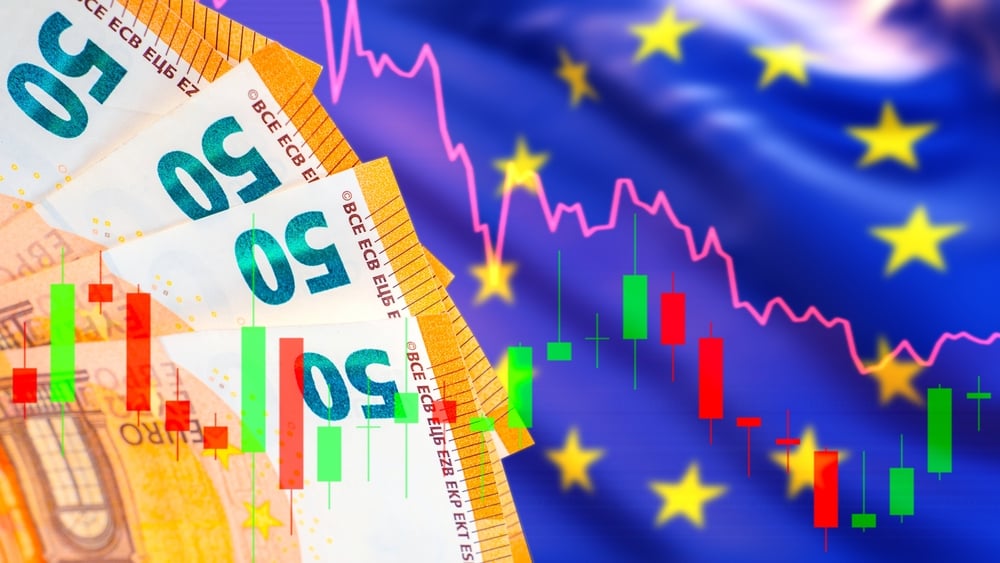
Eurozone Inflation Falls Below 2%, Fueling Expectations of ECB Rate Cuts
The euro area’s Inflation has dropped from the ECB’s 2% target for the first time since 2021, indicating that interest rates could be reduced earlier than expected. Based on the Eurostat data, food prices were 1.8% higher in September than the previous year, which was a 0.4% decrease from 2.2%, and the electricity and gas prices registered a 13.0% and 15.3% drop in August. This drop in consumer goods’ prices, due to cheaper energy, is in line with the forecasts of the analysts and it reinforces the view that the ECB may need to move more quickly on monetary policy easing.
Fueling Specification on Policy Shifts: Core Inflation Eases
The core inflation, which ignores the volatile items for example, energy and food, had a fall of 2.7% in September from 2.9% in August. The decrease reiterates investors’ confidence that the ECB will not accept impediments in monetary policy loosening, aiming to prevent economic stagnation.
Investor mood was further affected by the free fall of economic conditions inside the eurozone. The recent S&P Global survey showed that, the eurozone economy contracted last September, and part of the reason was losing demands and growing price pressures. The possible upcoming blast waves for the eurozone have been the reason for the rumours that the ECB will decrease the interest rates quicker than expected this year, which may, in fact, mean a third-rate cut this year. The data of the money market for this month now reveal a close to 90% chance of the rate dropping at the central bank’s meeting in October. Besides, a quarter-point cut will probably happen in December, which will again be the deposit rate from the current 3.5% to 3%.
Persistent Price Pressures and Services Inflation
Even though the headline number of Inflation is encouraging, analysts are reluctant to underestimate the underlying inflationary trends. The service inflation, the gauge closely monitored by policymakers regarding the domestic price rise, kept the nose stubbornly high as in September it went down just slightly to 4% from 4.1% in August. Inflation is on the decline as of late times, but the costs associated with the services sector are still high since wages are rising.
The salaries, which are one of the key reasons for the increase in Inflation in the service sector, begin to display signs that the wage trend is calming down. According to ECB Chief Economist Philip Lane, the rise in wages observed lately was mostly due to the workers’ effort to compensate for the loss of purchasing power experienced in previous years. Increased wage growth will lead to the career satisfaction of the workers and the normalization of Inflation in the services sector. However, the forward-looking price pressures in this sector may lead Inflation to rise back in the future, especially if there are energy cost variations as well.
ECB’s October Meeting: Economic Downturn and Market Uncertainty
The recent declining Inflation and economic downturn take their toll on the market; thus, the ECB’s October meeting will decide on the way the authorities will respond. Although the inflation rate has decreased to the 2% level, the ECB should be cautious about the risk that the price level starts to grow rapidly again in the event of a very expansionary monetary policy. It is possible that costs of services inflation and wage growth may become the prevailing factors of this sustained disinflation, whilst the unpredictable energy prices in the next few months might also emerge as such.
The eurozone economy is presently in a state of severe stress for multiple reasons which include the dip in demand and slow growth, thus leaving the European Central Bank (ECB) with the decision to adapt its monetary policies accordingly. The euro decreased by 0.2% to $1.1109 after attaining its recent peaks as markets reacted to the softer inflation data and the higher likelihood of interest rate cuts. When the European Central Bank gets ready to meet on October 17, the stock market will closely observe any signals indicating how dovish the policy might be that may imply the rapidly changing inflation scenario.
How the developments will change your investments, business decisions, and the wider European economy is a discussion we would love to participate in. Be sure and take advantage of this opportunity by subscribing to our newsletter!
The post Eurozone Inflation Below 2%, ECB Rate Cuts Likely appeared first on FinanceBrokerage.
